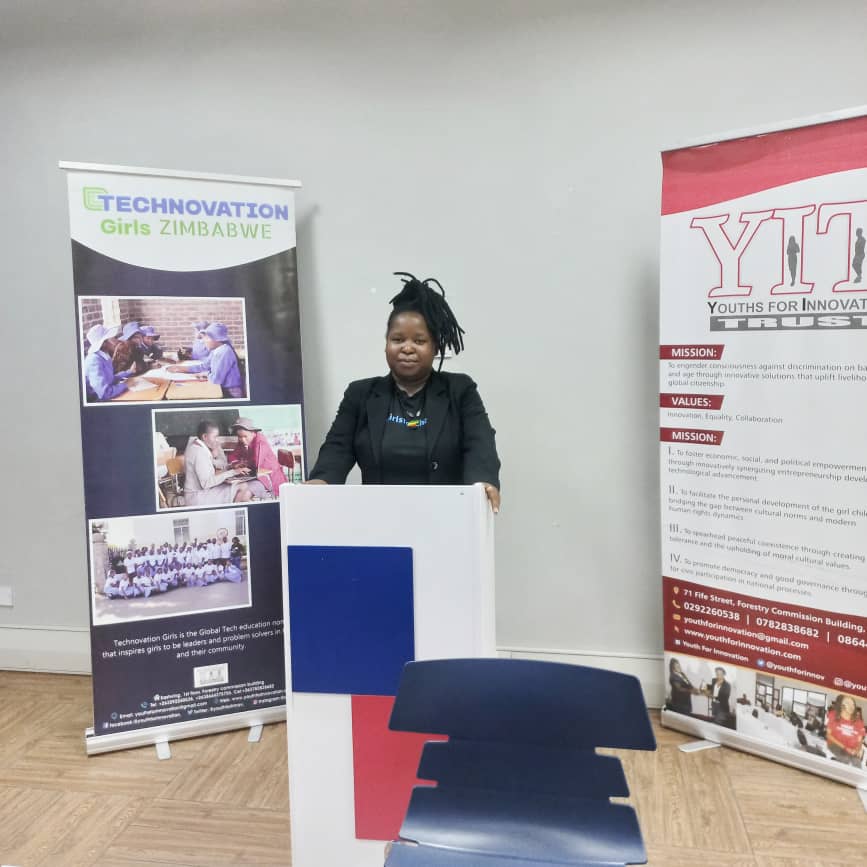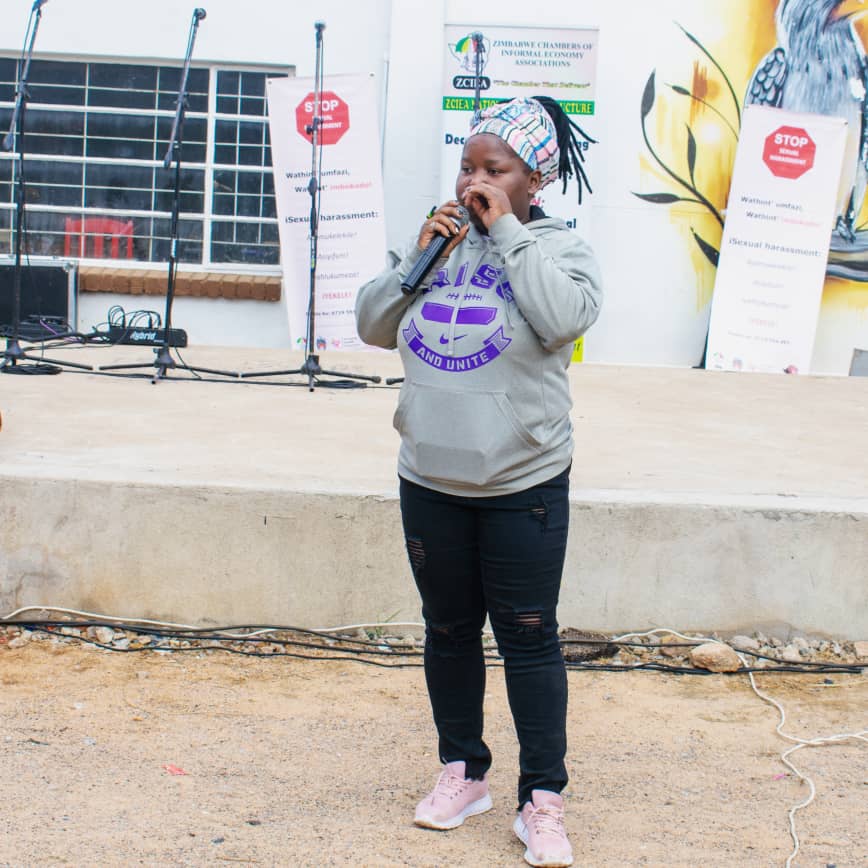
Thando Gwinji is a gender champion and digital media specialist with over 8 years of experience working within the civil society. She is a highly skilled development worker who is currently working as the Managing Director of Youth for Innovation Trust (YIT). YIT is a collective of active global citizens pushing for youth development through social innovation. Through her work at YIT, Thando has been implementing a number of projects that promote youth participation in public life. Some of the projects that she has led under YIT include the Humor for Social Change project; she is also leading the Loziba Movement (a collective of young women in art) and the Girls for a Change Movement (a collective of girls in ICT). As a youth leader Thando has led national movements such as Activista Zimbabwe and is the current chairperson of the Zimbabwe Young Feminist Movement. As recognition for her work, Gwinji was honored with an ICT, Innovation and Advocacy Award (2023) by the President of Zimbabwe and an award for being a Gender Champion (2019) by the Netherlands Embassy in Zimbabwe.
Thando speaks to Sunday Oyinloye, Publisher Green Savannah Diplomatic Cable
Excerpts:
What prompted you to start Youth for Innovation Trust
Youth for Innovation Trust was formed in the year 2015 and established in 2016 after realising the need for a community based and youth led initiative with a gender lense that harnesses the opportunities provided by new technologies.
Was there any challenge at the point of take off?
There were a number of challenges at the point of takeoff, the major one being the fact that stakeholders did not understand the importance of Innovation in a country with a need for humanitarian response to disasters. So we had very few local partners and very limited sources of funding.

What is your role as the Managing Director of the organization?
As the Managing Director of YIT I am responsible for the overall day to day running of the organization. I facilitate the planning and implementation of the organization’s strategic plans working with the management team. I ensure that YIT policies are upheld and I provide leadership and inspiration. I personally am a curriculum developer, trainer and activist so from time to time you will see me doing field work.
Would you want to talk about Humor for change project and the impact it has made if any?
The Humor for Social change was one of our initial major projects as YIT and we worked on it in collaboration with Umahlekisa Comedy Club under the R.O.O.M project. Through it we excelled in the use of stand-up comedy to influence social perceptions around pressing youth issues. We managed to not only start important conversations in a humorous manner but also brought youth closer to their office bearers through comedy roasts and the relationship has grown beyond the stage.
What is Loziba Movement and what has it been able to achieve?
The Loziba Movement is a collective of young womxn in art who are pushing for gender equality and social justice. The movement is a flagship of YIT formed in 2020 led by a committee of female artists. So far we have addressed pertinent issues such as the debt crisis, the plight of human rights defenders and local governance issues among other interventions. We have done this through producing new music, staging live concerts and poetry shows as well as through film. As a result we have increased the presence of women in art in the online space and created more platforms for them to perform offline. The pride of the Movement is giving a voice to the female artist as an opinion leader.

As the Chairperson of Zimbabwe Young Feminist Movement, how has the girl child fared and what is the plight of women in your country?
As is the case for most African Countries, Zimbabwe is still miles away from achieving gender equality. The most pressing issue for women and girls currently is the lack of political representation, even though we have a quota system our parliament has never reached 50-50 representation. This means that women are not fully part of policy formulation; as a result policies do not reflect gender sensitivity. Women are still fighting for basic human rights such as clean water, health, education and many others. In the midst of a lot of other crises in the country such as the economic crisis, women are the hardest hit. They have flooded the informal sector economy that is heavily criminalized. As if this wasn’t enough, spaces for organizing for change keep shrinking.
What are the factors limiting the youth of Zimbabwe from being innovative and what are you doing to reduce those challenges?
Youth in Zimbabwe are very innovative and resilient; they have come up with a number of innovations to help them maneuver the difficult terrains around them. They are actively involved in coming up with ICT based interventions, green innovations and other products that are helping Zimbabwe advance in achieving SDGs. We are working with such youth under Youth for Innovation Trust. However, the operating environment is still hostile for small innovative interventions. There are stringent policies, very heavy taxation, the lack of investment and the lack of infrastructure to cushion youth initiatives. To reduce these challenges, YIT has been advocating for policy change and youth friendly institutions through engaging relevant line ministries and engaging parliamentary processes.
How active are youth in policy and decision making in Zimbabwe?
Though they make the majority of the population it is unfortunate that youth are not very active in decision making processes. There have been measures to increase their representation in parliament through the quota system; however, youth who were elected in the 2023 elections are currently being recalled from parliament in an undemocratic manner. Avenues for participation still exist though through specific consultations and other means.
Give me a picture of Zimbabwe of your dream?
The Zimbabwe of my dream respects human rights, is accountable for its actions and upholds principles of democracy.
What should the world expect from your organisation in 2024?
In 2024, YIT will continue working with young women in art and in ICTs with the aim of touching more lives in rural spaces.









